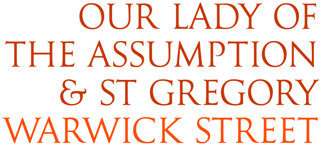Saint Gregory the Great
Feast Day – 12 March
Born around AD 540 to an aristocratic family with a tradition of public service, Gregory began a very promising political career as an urban prefect at age 30 only for his father’s death to convince him of the need to reform his life. Renouncing all worldly goals, Gregory sold all his possessions and distributed the proceeds to the poor. Still, enough remained for the construction of seven monasteries, six of which were built on his family’s estates in Sicily and the seventh on the Caelian Hill in Rome where Gregory himself became as a monk.
Pope Benedict I soon called Gregory out of his monastic life to serve as a regional deacon in 577 and was sent by Pope Pelagius II in 578 or 579 to the Court of Tiberius II in Constantinople as a kind of papal nuncio. In 585 he returned to his beloved monastery and soon was named abbot and ministered amongst the people of Rome.
Seeking to convert the people of Britain, Gregory obtained permission to travel there with some of his monks, but when the Roman people found out they convinced the Pope to have him immediately recalled to the city. When Pope Pelagius died in February 590, Gregory was the unanimous choice of the Roman clergy, senate, and people to become his successor.
Like his notable predecessor, Leo I (440-461), he became one of the only early popes named “the Great.” Leo earned the honour by exercising the authority of St. Peter, even getting the emperor to recognize papal supremacy in an imperial edict in 445 A.D. Gregory, had been reluctant to become pope wrote the Emperor Maurice requesting he withhold his consent but to no avail. While awaiting the Emperor’s decision and ruling in conjunction with several other high officials, Gregory called for the people to join in a vast procession from the seven hills of the city and march together, praying all the while for pardon and relief from the pestilence, to the Basilica of the Blessed Virgin, and thereafter the plague abated and conditions were transformed. Gregory’s letter to the Emperor had not been stopped short by the prefect of Rome and he was confirmed as pope.
Pope Gregory habitually referred to himself as the “servant of the servants of God.” As the first monk to become pope, he did much to foster the spread of monasticism. He reorganized the scattered papal estates so that the poor of the city could be fed during the famine that raged when he took office. Most notably for those of us here in England, he sent the prior of his Roman monastery, Augustine, with other monks to convert the Anglo-Saxons.




